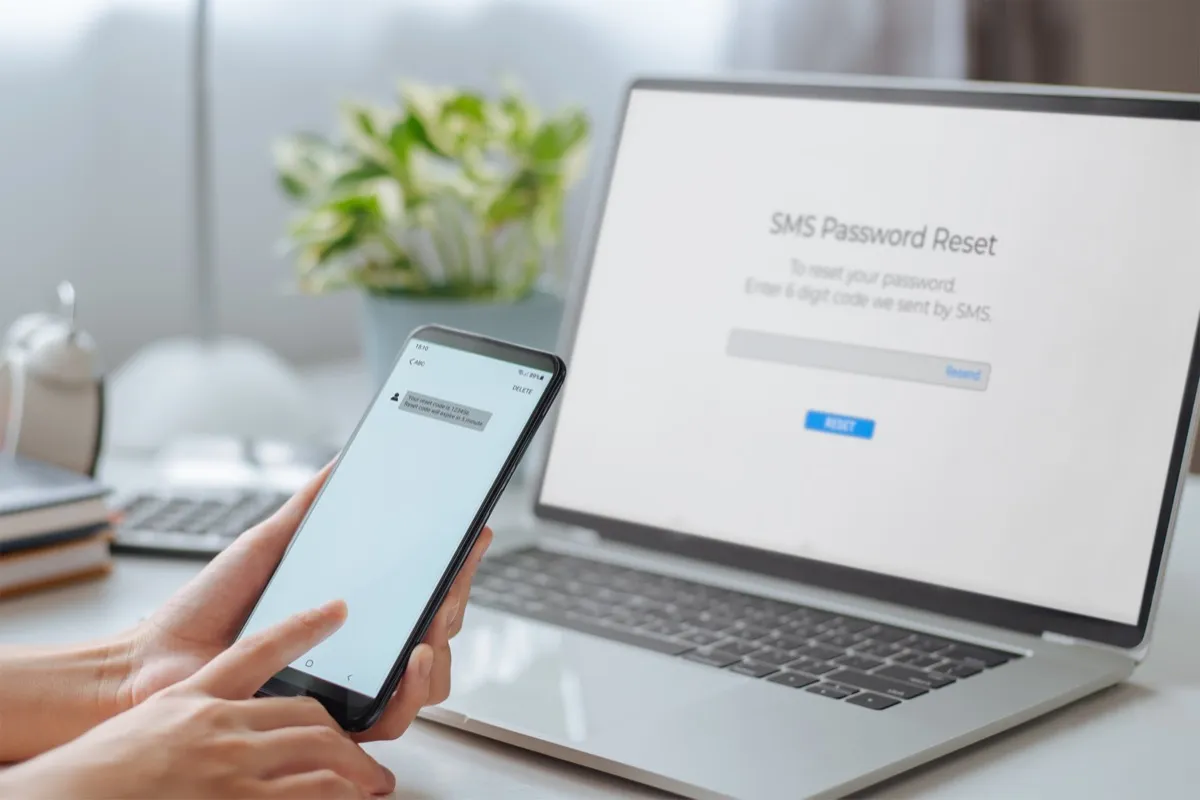10 Tech Tips for Seniors: How to Master Your Devices

Today’s rapid rate of technological advancement would be unrecognizable to people from centuries past. Back then, the skills you learned in childhood or young adulthood would generally serve you throughout your life. By contrast, as current technologies quickly become obsolete, many seniors struggle to keep up with the never-ending list of new tech gadgets, apps, and features.
The World Economic Forum illustrates just how different things look today. “It took 2.4 million years for our ancestors to control fire and use it for cooking, but 66 years to go from the first flight to humans landing on the moon,” Now new advancements in AI have the capacity to revolutionize technology at a pace never seen before in human history, they note. In other words, if the pace of new tech feels dizzying to you, you’re not alone—even the creators of these emerging technologies appear to be learning as they go.
That said, there are some big payoffs to mastering your devices rather than giving up on tech as you get older. “Patience is key,” says Jacob Kalvo, co-founder and CEO at Live Proxies. “Technology evolves rapidly, and it’s common to feel overwhelmed. Remember that mastery takes time, and it’s perfectly okay to learn at your own pace. Emphasizing this in your approach will remove a lot of the stress that comes with learning new technology.”
Ready to revolutionize your tech use and master your devices? These are the top 10 tips experts recommend to bring seniors up to speed.
RELATED: 5 Stores That Offer a Senior Discount—And When to Shop Them.
1
Start small.

If you feel completely out of your comfort zone when it comes to technology, there’s absolutely no shame in beginning with the basics.
“When it comes to seniors who feel like they’re falling behind technologically, my first tip would be to embrace one device at a time,” suggests Kalvo. “Start with a device you need to use most often—like a smartphone or a tablet. Familiarize yourself with its basic functions before moving on to more advanced features. This helps build confidence and reduces overwhelm.”
Eric Palm, president of the mobile internet company SIMO, agrees that it’s best to start small. He recommends beginning by familiarizing yourself with the basic functions of the device, such as understanding how to turn it on and off, connect to Wi-Fi, and adjust settings—all of which you can find in the user manual. “This will give you a better understanding of its features and how to use them effectively,” he says.
2
Customize your tech.

Customizing your technology may seem like an advanced step, but simple changes in your settings can make devices much more accessible to seniors, Kalvo says.
“Many seniors may not realize how customizable technology can be,” says Kalvo. “Smartphones, tablets, and computers have various settings that can enhance readability, such as text enlargement and screen contrast adjustments. These settings are invaluable for making devices more accessible and easier to use,” he tells Best Life.
Taking a moment to set up facial recognition or fingerprint authentication can also save you time and effort in the long run.
3
Take advantage of tutorials.

There are lots of resources out there to help seniors master their devices, which is why Kalvo recommends taking advantage of tutorials or workshops you can find in your area or online.
“Many community centers, libraries, and even tech stores offer classes that are paced for senior learning. These classes cover everything from basic operations to specific applications like video calling and using social media,” he says.
Zarik Megerdichian, founder and CEO of the personal privacy controller company Loop8, agrees that these resources tend to be under-utilized. “Visit your local library for information, ask your town or city hall if they offer technology classes for adults, and inquire whether your county has a senior center that provides resources like these,” he suggests.
RELATED: 10 Home Upgrades You Should Make If You’re Over 65, Experts Say.
4
Keep a tech diary as you go.

When it comes to mastering technology, there’s a wealth of information you’ll need to process and remember. Kalvo says that keeping a tech diary can be a helpful way to make sure you retain what you’ve learned.
“Writing down steps for processes you’ve learned, noting down how to troubleshoot common issues, or even keeping track of passwords (in a secure place) can act as a personal reference guide when memory fails,” he urges.
5
Ask someone who’s tech-savvy to help you troubleshoot.

Even if you’re taking to your tech with ease, it’s inevitable that you’ll come up against a wall at some point. When this happens, don’t abandon all the progress you’ve made, Megerdichian says. Instead, he recommends enlisting a technical advisor—someone who can answer your questions on occasion, help you troubleshoot problems, or sniff out scams.
“Identify a trusted friend or family member that you can ask for help when you’re unsure about the validity of a request for personal information,” he recommends.
6
Utilize tech to teach you.

There are also plenty of online resources to help you master your tech, Megerdichian notes.
“These days, there are YouTube videos that can instruct viewers on every skill imaginable. Often a video can explain technology and solve technical problems better than written language, as it offers both verbal and visual instruction and demonstration,” he says. “Remember that you can often also get help from Siri or Alexa.”
7
Use it to connect.

Making the process of learning fun can help keep you motivated, Kalvo says. That’s why he recommends using technology to connect with family and friends.
“This not only provides a practical way to practice using new tech but also makes the process more enjoyable. For instance, learning to send emails or messages, or make video calls can be motivated by the desire to stay in touch with loved ones,” he says.
8
Practice good internet safety.

Practicing good internet safety can also help ensure that you have a good experience with your devices. Kalvo says it’s important to learn about basic cybersecurity practices—in particular, “understanding how to create strong passwords, recognizing common scams and frauds targeting seniors, and knowing how to safely navigate the internet are essential skills.”
Megerdichian agrees that many seniors are reluctant to embrace new tech out of fear of falling prey to privacy violations and scams. “There’s a good reason for that, as scams targeting older adults are prevalent,” he says.
To minimize your risk, he recommends protecting your passwords and your digital footprint. “Cookies collect data on every online website we visit. If we let them, they’ll store our personal information, including passwords, credit card numbers, physical addresses, and more. Keep passwords and other information in a safe place and use incognito mode every time you use a public computer,” he advises.
And, always think twice before giving out personal information. “When in doubt, don’t give it out,” Megerdichian says, noting that your date of birth and social security number should generally be kept private unless you completely trust the site. “Question every request for this private information to ensure it is necessary to disclose,” he recommends.
9
Get a personal hotspot.

Palm notes that you should also avoid using un-trusted networks when you’re browsing: “Avoid public Wi-Fi due to its unsecured nature, making you vulnerable to data theft and identity fraud. If you must use it, be cautious of network selection and use a VPN for added security.”
He adds that for safer browsing on the go, you should consider using a personal Wi-Fi hotspot that can provide secure connectivity.
10
Never assume you’re too old to embrace technology.

Finally, when you’re ready to embrace new tech, it’s important to let go of your own age bias, says Burton Kelso, owner and chief tech expert at Integral.
“You may think that technology is only for younger people as it seems that kids are able to pick up a device and use it instantly. The primary reason kids seem to excel at technology? They are fearless and just keep hitting buttons until they figure things out,” he says.
Kelso notes that he worked with a client who was 101 years old and saw firsthand how anyone can build tech skills at any age: “They are able to use FaceTime, send text messages back and forth, and set up and use their smart TV.”
Kelso stresses the importance of getting out of your mindset that if you do something wrong on your tech device, you’re going to break it. “Technology devices are pretty sturdy, so it will take a lot for you to break your devices,” he says.